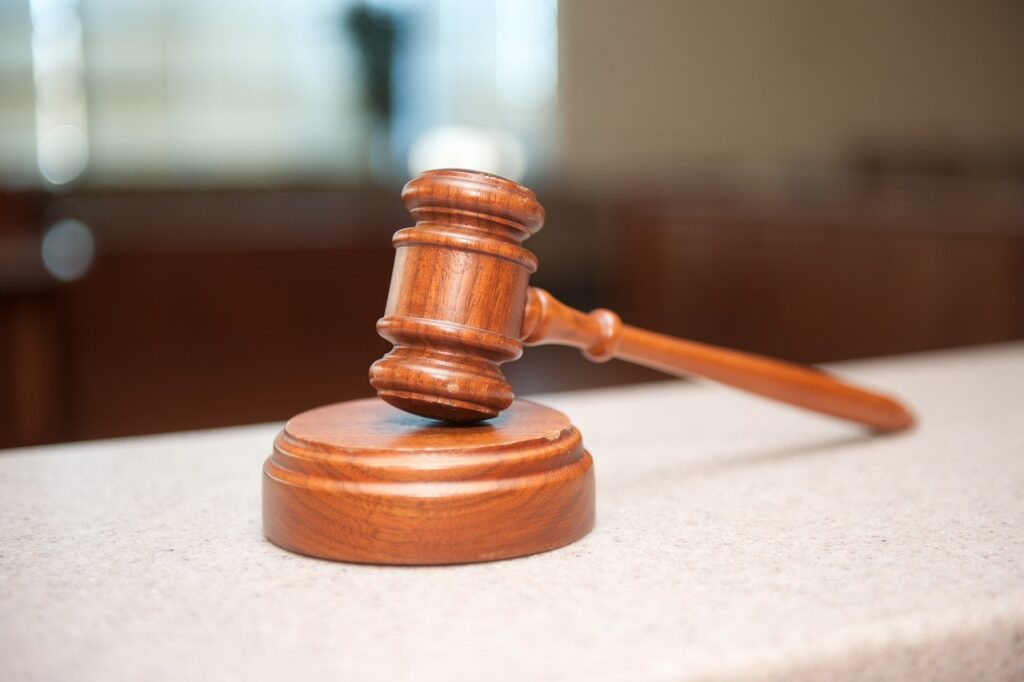Published On: 20th March, 2024
Abstract
In the intricate landscape of internet shutdowns, a practice increasingly prevalent worldwide, governments grapple with the delicate balance between safeguarding national security and respecting individual freedoms. This discourse unfolds against the backdrop of escalating challenges, including incitement to violence on social media platforms and the imperative to address cross-border terrorism. While some instances, such as the 2016 internet shutdown in Kashmir following Burhan Wani’s death, may find validation in the interest of state security, others, like arbitrary shutdowns to prevent cheating or introduce new laws, pose a stark contrast, embodying digital authoritarianism. This dialectic calls for a nuanced evaluation of justifications, emphasizing the need for transparency, accountability, and adherence to constitutional principles in the execution of such measures. Strengthening legal frameworks, as exemplified by revisiting outdated provisions like the Telegraph Act, becomes imperative to align with evolving human rights standards. Moreover, the Supreme Court’s guidelines, emphasizing the temporary nature of shutdowns, proportionality, and the avenue for judicial review, form the cornerstone for a balanced approach. Exploring less intrusive alternatives and fostering a more transparent dialogue on policies and processes surrounding internet shutdowns is paramount, ensuring a harmonious intersection of state interests and individual liberties in our digital age.
Understanding Internet Shutdowns
Internet shutdowns, orchestrated by governments or their representatives, represent intentional disruptions aimed at impeding access to and use of information and communication systems. This multifaceted approach involves slowing internet access through bandwidth throttling, blocking specific apps like social media or messaging services, and, at times, even disrupting internet access partially or entirely, including telephone networks. These shutdowns, strategically implemented, severely curtail people’s ability to access, share information, and communicate. As information and communication become increasingly central to various aspects of life, shutdowns impact a spectrum of rights, including those related to work, health, and education across global regions. In situations marked by conflict and unrest, shutdowns heighten the risks of violence and insecurity, imposing substantial economic costs and hindering developmental progress.
Internet shutdowns manifest as deliberate disruptions of internet or electronic communications, rendering them inaccessible or effectively unusable for specific populations or within defined locations. This tactic is often employed by governments to exert control over the flow of information, affecting both mobile and broadband internet services.[1] Commonly used to suppress dissent and quell unrest, internet shutdowns are a recurring phenomenon in the governmental toolbox. A poignant illustration of the tangible impact of internet shutdowns emerges from the Manipur government’s decision on September 23, 2023, to restore full internet access. The blackout, lasting an extensive 143 days since May 3, concluded with the government attributing the restoration to an “improved” law and order situation. This event, India’s second-longest internet blackout, prompted a collective sigh of relief from citizens. For students planning their return to Manipur and aid workers in dire need of essential supplies, the restoration marked a critical turning point.[2]
The intersection of internet shutdowns with human rights has become a significant concern, with many arguing that such actions constitute a violation of freedom of expression and assembly. This confluence of geopolitical decisions and individual rights necessitates a careful legal analysis, considering constitutional principles and international human rights norms.
What is digital rights?
In the era of digitalization, the law grapples with the imperative to adapt and provide protection for fundamental rights within the expanding digital realm. Digital rights, intricately connected to the principles of freedom of expression and privacy, empower individuals to access, use, create, and publish digital media, extending to the realm of computers, electronic devices, and communication networks. The transformative impact of digital technologies on fundamental rights necessitates a significant evolution in the legal landscape, where ongoing technological advancements demand a continuous recalibration of regulatory frameworks. As 5G facilitates hyperconnectivity and technologies like the Internet of Things and Big Data reshape the landscape, a meticulous regulatory approach becomes essential to safeguard the rights of individuals amidst evolving technological challenges.
Digital rights serve as an extension of the principles outlined in the Universal Declaration of Human Rights, applied to the online world. The primary goal is to ensure universal access to the internet, bridging the digital divide and promoting responsible internet use as a shared asset for humanity. Despite the absence of international consensus on human rights in the digital realm, individual countries are formulating their Digital Rights Charters. In this dynamic landscape, where governments play a crucial role in safeguarding fundamental freedoms, principles of universal and equal internet access, freedom of expression, privacy, data protection, anonymity, and intellectual property protection emerge as vital focal points, requiring a delicate equilibrium between technological progress and the preservation of fundamental human rights.[3]
Authoritarian Practices
Internet shutdowns, a recurrent authoritarian practice, find roots in the strategic utilization of the “digital toolkit” by regimes seeking to quell challenges to their authority. While commonly perceived as a last-resort response in times of crisis, not every shutdown originates directly from the top echelons of a regime. A nuanced perspective on shutdowns as authoritarian practices, as proposed in this analysis, involves recognizing them as a pattern of actions within an organized context, undermining accountability to the people. In the Indian context, the power to impose shutdowns primarily lies at the state level rather than the central government, intertwining with the nation’s polarized political climate and regulatory framework.[4]
The authoritarian nature of shutdowns lies in their deliberate disruption of citizens’ access to information and stifling of their voices. This approach questions the centrality of the national regime, acknowledging decision-making power at lower administrative levels and emphasizing the socio-organizational context. Examining India’s scenario, where shutdowns in the region of Jammu and Kashmir have been notably frequent, reveals a concerning trend. Data from the Software Freedom Law Centre indicates a significant share of global shutdowns in 2018 occurred in India, with a substantial percentage in Jammu and Kashmir alone. The impact extends beyond mere inconvenience, with a report by the Indian Council for Research on International Economic Relations highlighting a substantial economic cost to the state due to shutdowns. Illustrating this authoritarian practice, the analysis delves into specific instances, such as the shutdown following the revocation of Article 370 in Jammu & Kashmir in 2019. This blackout, affecting millions, underscores the detrimental consequences on essential aspects of life, from education to business operations. The Indian government’s rationale for such shutdowns, citing prevention of violence fueled by social media, raises ethical concerns regarding the curtailment of basic rights for the sake of maintaining order.[5]
Furthermore, the United Nations joint statement on the situation in Jammu and Kashmir condemns the shutdown of internet services as inconsistent with fundamental norms of necessity and proportionality. This international perspective underscores the gravity of the issue, emphasizing the need for accountability and adherence to human rights norms.
In conclusion, a comprehensive understanding of internet shutdowns as authoritarian practices necessitates an examination beyond their immediate impact. It involves recognizing the intricate dynamics of decision-making, socio-political contexts, and the far-reaching consequences on individuals and society at large.
Legal Framework of Digital Rights
In the intricate tapestry of India’s legal framework, the interplay between the cherished right to free speech and the government’s authority to impose restrictions takes center stage, particularly in the realm of internet shutdowns. Let’s dissect the nuanced legal provisions that govern this landscape, weaving through the complexities with a keen legal eye.
I. CrPC’s Section 144: Balancing Urgency and Safeguards Section 144 of the Code of Criminal Procedure (CrPC) grants magistrates the power to issue orders swiftly, aiming to prevent public disturbances or threats to life. This authority, while broad, is circumscribed by the necessity of an immediate crisis and the requirement to articulate the rationale in a written order. Courts, cognizant of the need for genuine emergencies, carefully scrutinize the exercise of this power to strike a delicate balance.
II. IT Act and Blocking Rules: Rigorous Scrutiny for Digital Controls Section 69A of the Information Technology (Amendment) Act, 2008, empowers the Central Government to block public access to certain information. The Blocking Rules establish a comprehensive framework, involving designated officers, committees, and periodic reviews. Despite nuanced interpretations, the judiciary emphasizes that Section 69A shouldn’t serve as a tool for a blanket internet shutdown but as a means for targeted blocking of specific websites.
III. Telegraph Act and Suspension Rules: Navigating Equilibrium Section 5(2) of the Telegraph Act, 1885, provides authority for orders to suspend telecommunication services. The Suspension Rules outline a procedural mechanism, raising concerns about the efficacy of the review committee and the lack of transparency. Advocating for periodic reviews and public notification becomes imperative, aligning with democratic principles.[6]
Impact of Internet Shutdown
In the ever-evolving landscape of digital rights, the repercussions of internet shutdowns reverberate across fundamental freedoms, economic stability, and societal well-being. Let’s delve into the multifaceted impact, dissecting the legal intricacies while acknowledging the profound human consequences.
I. Violation of Fundamental Rights: A Constitutional Conundrum The bedrock of democratic principles, Article 19(1)(a) and Article 19(1)(g) of the Constitution safeguard freedom of speech, expression, and the right to practice any profession over the internet. The landmark judgment in Anuradha Bhasin vs Union of India (2020) solidifies these protections. Simultaneously, the shutdowns encroach upon the Fundamental Right to Information and the emergent Fundamental Right to the Internet, declared by the Supreme Court and the Kerala High Court respectively.
II. Economic Implications: A Toll on Prosperity Beyond legal nuances, the economic fallout of internet shutdowns is stark. Businesses, especially startups and small enterprises heavily reliant on online operations, bear the brunt of financial losses. According to Top10VPN, India incurred a staggering loss of Rs 2,091 crore ($255.2 million) in the first half of 2023 due to these disruptions, underscoring the far-reaching economic consequences.[7]
III. Disruption of Education: An Impediment to Knowledge The shutdowns disrupt the educational ecosystem, hindering students’ access to online resources. In an era where digital platforms are integral to learning, these interruptions create barriers to education, impacting the future workforce and intellectual development.
IV. Trust Erosion and Censorship Concerns: Navigating Democratic Values Internet shutdowns not only erode public trust in government actions but also raise concerns about censorship and transparency. Upholding democratic values necessitates a delicate balance between national security imperatives and preserving individual rights.
V. Impediment to Disaster Response and Healthcare: A Humanitarian Perspective During emergencies, shutdowns impede communication and coordination, hindering disaster response efforts. The impact extends to healthcare systems, disrupting the delivery of essential services and impeding the exchange of crucial health information.
VI. International Repercussions: Shaping Global Perceptions With India leading the world in internet shutdowns, the international community takes notice. Such actions can attract global condemnation, potentially tarnishing a country’s reputation and straining diplomatic relations.
VII. Impact on Journalism: Safeguarding the Fourth Estate Journalists, vital pillars of democracy, face obstacles in reporting and disseminating information during shutdowns. The right to freedom of the press, a Fundamental Right, faces challenges as journalists grapple with restricted internet access.
VIII. Economic Data: Quantifying the Toll Beyond legal dimensions, the economic toll of shutdowns is quantifiable. Studies reveal that 16,315 hours of internet shutdowns in India cost the economy approximately $3.04 billion from 2012 to 2017. These figures underscore the tangible and far-reaching economic ramifications.[8]
In navigating the intricate labyrinth of internet shutdowns, a nuanced understanding of legal complexities is essential. Simultaneously, acknowledging the human impact underscores the urgency of striking a delicate balance between security imperatives and upholding the democratic ethos that forms the bedrock of our legal framework.
Judiciary on Internet shutdown
In the realm of constitutional scrutiny, the case of Anuradha Bhasin v. Union of India and Others (2020 AIR SC 1308)[9] delves into the constitutional intricacies surrounding the imposition of restrictions on communication and internet services in Jammu and Kashmir. The petitioner, Mr. Ghulam Nabi Azad, challenged the constitutionality of these restrictions, asserting a violation of fundamental rights under Article 19 of the Constitution. The court, emphasizing the significance of freedom of speech and expression, held that any restrictions must be proportionate to the perceived threat, safeguarding the invaluable right to press freedom under Article 19(1)(a).
In a seminal judgment, Shreya Singhal v. Union of India (2015 COMPLJ SC 2 143)[10], the constitutional validity of Section 66-A of the Information Technology Act, 2000, came under scrutiny. The petitioner argued that this provision infringed upon the fundamental right of freedom of speech and expression. The court, recognizing the chilling effect on free speech, declared Section 66-A unconstitutional. The decision laid down a precedent, emphasizing the delicate balance between upholding constitutional rights and regulating online content.
In the case of Faheema Shirin v. State of Kerala (WP(C)No.19716 OF 2019(L))[11], the court grappled with the imposition of restrictions on mobile phone usage in a hostel setting. The judgment asserted that students have a right to stay in hostels, subject to disciplinary controls. The court, linking access to the internet with the right to education under Article 21, deemed the restriction on mobile phone usage during study hours as an infringement of fundamental rights.
These cases collectively underscore the evolving legal landscape surrounding internet shutdowns, delving into constitutional nuances, freedom of speech, and the intersection of technology with fundamental rights. As judicial scrutiny continues, it remains imperative to strike a balance between state interests and safeguarding individual liberties in the digital age.
Conclusion
In navigating the contentious terrain of internet shutdowns, it becomes imperative to acknowledge the multifaceted nature of this issue. While internet shutdowns are undeniably invasive forms of censorship, there exists a nuanced dialogue on their validity, often tied to concerns of civil security and the rise of incitement to violence on social media platforms. Governments, particularly in response to pressing issues such as cross-border terrorism or threats to the security of the state, have resorted to the drastic measure of internet shutdowns. However, a critical examination reveals a spectrum of justifications, ranging from the warranted, as seen in the context of unrest following Burhan Wani’s death in Kashmir in 2016, to the arbitrary, exemplified by shutdowns to prevent cheating or enforce new laws. This dichotomy underscores the delicate balance required between state interests and individual liberties within a democratic framework.
In the realm of legal frameworks and accountability, a concerted effort is needed to strengthen existing regulations governing internet shutdowns. The outdated and vague provisions of the Telegraph Act must be revisited to align with constitutional and human rights standards. Moreover, accountability measures should be enhanced, ensuring transparency in the decision-making process and providing effective remedies for those affected. As a paramount guideline, authorities should adhere to the directives laid out by the Supreme Court in the Anuradha Bhasin case (2020), emphasizing the temporary nature of suspensions, proportionality in enforcement, and the necessity for judicial review. Additionally, exploring less intrusive alternatives, such as targeted content blocking or engagement with civil society, can foster a more balanced approach that safeguards both state security and individual freedoms in the digital age.
Reference(s):
- De Gregorio, G. and Stremlau, N., 2020. Internet shutdowns and the limits of law. International Journal of Communication 14(2020), 1–19 1932–8036/20200005 Page 1-20 Page cited 2/3 Last visited 27.01.2024
- How Internet Shutdowns Wreak Havoc in India | TIME Last Visited 27.01.2024
- Data protection and digital rights in India | IDR (idronline.org) Last visited 27.01.2024
- Glasius, M. and Michaelsen, M., 2018. Authoritarian practices in the digital age| illiberal and authoritarian practices in the digital sphere—prologue. International Journal of Communication, 12, p.19. Last visited 28.01.2024
- Bashir, S. and Awan, M.B., 2020. India’s Digital Repression In Jammu And Kashmir: A Human Rights Perspective. Webology (ISSN: 1735-188X), 18(5). Last Visited 28.01.2024
- Legal Validity and Government Regulation related to Internet Shutdown in 2019 (ipleaders. in) Last Visited on 28.01.2024
- Kathuria, R., Kedia, M., Varma, G., Bagchi, K. and Sekhani, R., 2018. The anatomy of an internet blackout: measuring the economic impact of internet shutdowns in India. P. 36
- Panicker, R., 2020. Internet Shutdown: Is It a Violation of Fundamental Rights? Available at SSRN 3667818. Last visited 29.01.2024
- Anuradha Bhasin vs Union Of India on 10 January, 2020 (indiankanoon.org) Last Visited on 29.01.2024
- Shreya Singhal vs U.O.I on 24 March, 2015 (indiankanoon.org) Last Visited on 29.01.2024
- Faheema Shirin.R.K vs State Of Kerala on 19 September, 2019 (indiankanoon.org) Last Visited 29.01.2024
[1] De Gregorio, G. and Stremlau, N., 2020. Internet shutdowns and the limits of law. International Journal of Communication 14(2020), 1–19 1932–8036/20200005 Page 1-20 Page cited 2/3 Last visited 27.01.2024
[2] How Internet Shutdowns Wreak Havoc in India | TIME Last Visited 27.01.2024
[3] Data protection and digital rights in India | IDR (idronline.org) Last visited 27.01.2024
[4] Glasius, M. and Michaelsen, M., 2018. Authoritarian practices in the digital age| illiberal and authoritarian practices in the digital sphere—prologue. International Journal of Communication, 12, p.19. Last visited 28.01.2024
[5] Bashir, S. and Awan, M.B., 2020. India’s Digital Repression In Jammu And Kashmir: A Human Rights Perspective. Webology (ISSN: 1735-188X), 18(5). Last Visited 28.01.2024
[6] Legal Validity and Government Regulation related to Internet Shutdown in 2019 (ipleaders.in) Last Visited on 28.01.2024
[7] Kathuria, R., Kedia, M., Varma, G., Bagchi, K. and Sekhani, R., 2018. The anatomy of an internet blackout: measuring the economic impact of internet shutdowns in India. P. 36
[8] Panicker, R., 2020. Internet Shutdown: Is It Violation of Fundamental Rights? Available at SSRN 3667818. Last visited 29.01.2024
[9] Anuradha Bhasin vs Union Of India on 10 January, 2020 (indiankanoon.org) Last Visited on 29.01.2024
[10] Shreya Singhal vs U.O.I on 24 March, 2015 (indiankanoon.org) Last Visited on 29.01.2024
[11] Faheema Shirin.R.K vs State Of Kerala on 19 September, 2019 (indiankanoon.org) Last Visited 29.01.2024




